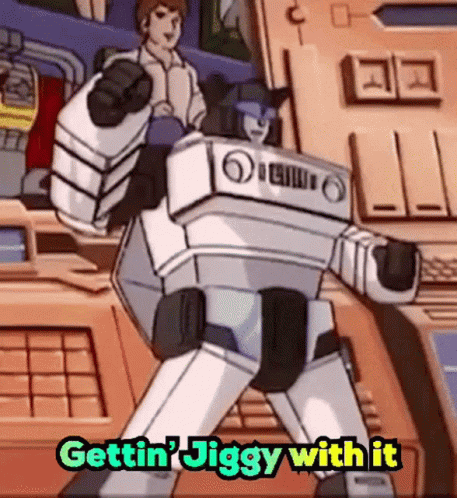Don’t forget we moved!
https://brandmu.day/
D&D Licensing Agreement
-
@Pyrephox said in D&D Licensing Agreement:
@Faraday said in D&D Licensing Agreement:
@Jennkryst said in D&D Licensing Agreement:
‘because boycotts never work’… like I said, I’ve got a very recent, very visible boycott that DID work to call them out on their bullshit.
Absolutes are rarely correct, so of course we can’t say that boycotts never work.
One can say, though, that boycotts rarely work. But don’t take my word for it, listen to the economists:
“The typical boycott doesn’t have much impact on sales revenue.” (source: Institute for Policy Research https://www.ipr.northwestern.edu/news/2017/king-corporate-boycotts.html)
“If the aim is to hurt company sales, boycotts rarely succeed.” (source: NYT https://www.nytimes.com/roomfordebate/2017/02/07/when-do-consumer-boycotts-work)
“most [boycotts] fail to have any noticeable impact.” (source: Harvard Business Review https://hbr.org/2012/08/when-do-company-boycotts-work)
etc.
There are plenty of obstacles to getting enough critical mass behind a boycott to matter, and the perception of “eh, it probably won’t work anyway” is only a small part.
Those articles do note that with the right conditions, boycotts can be successful. Usually it’s negative press that matters more to the companies than any impact to the bottom line, and occasionally it’s possible to drum up enough support to make a dent to sales.
With WotC I’d speculate it was a perfect storm: the negative press was killing them (after all, their whole business model relies on other companies trusting them enough to make games on their platform), and it’s a small market to begin with (fewer actual humans must be motivated to impact the bottom line).
To this, I’d add that the company had a specific metric that it was using (D&D Beyond subscriptions) that could be directly impacted in ‘real time’ by people in a measurable way (canceling said subscription), as well as already including data collection of WHY that metric was changing (the cancelation page asks you why you’re canceling - I specifically indicated the OGL and I’m sure others did likewise).
This made it quite easy for decision makers to rapidly see what impact customer action was having on their profit base, and to know why. Most boycotts - especially for products with a national or international platform - don’t have that luxury.
Additionally, given that is their metric, the proliferation of news online was far more likely to reach the target demographic.
Whereas news about an author’s socio-political views aren’t necessarily going to seep into the consciousness of the millions of people who are fans of their work and its off-shoots.
-
All very reasonable and true, but still:
Fuck JK rowling. And that game. -
@hellfrog said in D&D Licensing Agreement:
All very reasonable and true, but still:
Oh just to be clear - I’m not trying to say people shouldn’t boycott. By all means, stand on principle. I was specifically commenting on the idea that “boycotts never work” was BS.
-
@Faraday said in D&D Licensing Agreement:
@hellfrog said in D&D Licensing Agreement:
All very reasonable and true, but still:
Oh just to be clear - I’m not trying to say people shouldn’t boycott. By all means, stand on principle. I was specifically commenting on the idea that “boycotts never work” is BS.
Oh, absolutely. Boycotts, protests, strongly worded letters, all of that. They may be ineffectual by themselves, or in many circumstances, but if you don’t try then you won’t know the result.
ETA: And you get to look your trans friends in the eye afterwards.
-
Does anyone who has RTFM know how or if the new agreement applies to virtual table-top?
I think that’s the real ‘battlefield’ here. The profits WOTC and other vendors stand to make from physical books is probably less than monthly subscriptions.
The other factor is these services hard lock players into one specific ecosystem in a way table-top doesn’t. After all if you and your buddies go “oh FUCK Hasbro!” all you need to do is replace those gaming manuals on your table between the pizza boxes with another company’s. But once you have been using D&D Beyond, everyone’s handbooks are linked there with character sheets and all those convenient automations tied to it… it’s a much harder decision to make.
Does it look like WOTC can change their minds in a year and make that sort of investment backfire?
-
@Arkandel The 5.1 SRD stuff released is released forever under a CC license. They can’t touch it. Right now, they’re saying they won’t touch the original OGL anymore, either – and I doubt a year is enough time for them to be willing to try to touch that hot stove again. There’s really no new agreement, they stepped back from the fight.
-
Something I don’t see a lot of discussion about is that in 2022 an activist investor with a 2.5% stake in Hasbro made a very aggressive move to spin WotC off from Hasbro, because WotC accounts for roughly 70% of Hasbro’s revenue. Hasbro barely triumphed in retaining investor confidence, but now the shareholders are much more aware of the role WotC/D&D play in the company’s financial success. I think this drove not only the ill-considered attempt to squeeze more out of the D&D community, but also the speed and abruptness of this turn-around. Someone got called to the carpet and it’ll be interesting to see what happens next.
-
@shit-piss-love D&D isn’t and never has been the breadwinner for WOTC. It’s all Magic: The Gathering.
-
If Hasbro had any brains, they’d have WotC’s writers come up with a wargaming ruleset for GIJoe and Transformers. And hawk the existing figures and stuff to use in game. In a huge middle finger to Games Workshop.
